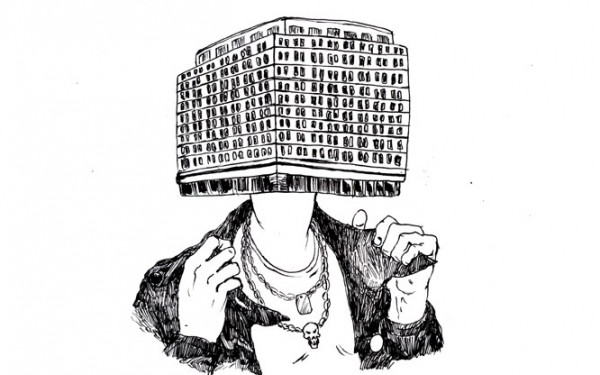Editorial
For Richer or For Poorer
When it comes to money, it seems like Concordia operates in two parallel universes.
In one, the school is plagued with crippling underfunding and is struggling to provide high-quality education for students. In the other, the university has cash to burn on things like car allowances and trips to China for top executives.
The underfunded university wants cream of the crop professors, but can’t scrape together a cost of living increase for its part-time faculty association. It’s working to prioritize library staff, but hasn’t given them a raise in three years. It desperately needs more steelworkers but can’t offer competitive contracts–or any contract at all–to attract the best.
Then you flip the coin.
Suddenly, the school can afford to dole out a $7,000 cost of living increase to a president already making $350,000 a year. There’s money in the bank to double the annual professional development or scholarly research allowance to $10,000 to match that of other universities.
Apparently, we need a hermetically sealed, non-negotiable contract if we want a president we’re proud of.
While it might seem shortsighted or malicious of the university, the schism stems from something much simpler. It’s just a question of priorities.
Maybe we’re naive, but new President Alan Shepard has given us no reason to believe that his intentions are driven by greed.
He says urban schools like Concordia are the future of universities, and that we have a faculty that can compare favourably to anyone’s.
We like to think it wasn’t the $1,200 monthly car allowance plus upkeep costs that made the difference for him. Maybe we’re wrong.
It’s this kind of misspending that pushed much-needed donors away from the community, cutting into scholarships, bursaries and research dollars.
It was the generous gifting of a new Lexus to VP External Relations and Secretary-General Bram Freedman that was the final straw for substantial donors Jack and Judith Kornblatt, the latter of which had written ConU into her life insurance policy. That Lexus lost us $1 million.
It’s just hard to believe that Shepard, an American who could probably be working successfully in a more lucrative country, is at Concordia for the fiscal perks.
When the university claims they have to compete with the private sector in order to snag Shepard, it stings a bit. It would be nice if the university extended these sentiments to the people keeping the university running on a daily basis—the ones who have been loyal to Concordia for years.
An electrician working at Concordia makes $22.36 an hour, while one doing the same work at McGill makes about 12 per cent more. Shepard gets offered a 2 per cent increase for cost of living, while the technicians—people who area actually affected by increases in the cost of living—get slapped in the face with one quarter of that.
Does Alan Shepard need $50,400 to cover housing costs for the year while teaching assistants struggle to make rent?
For a public entity, Concordia’s priorities are infuriatingly out of sync with public values.
Every article from Le Journal de Québec and The Gazette or radio spot from CBC or CJAD is met with the same public outrage: They spent taxpayer money how? Again?
Concordia adopted most of the recommendations from the Shapiro Report—the external review commissioned in 2011 by the Board of Governors to look into university governance in light of massive severance packages that were being handed out—but never asked why those recommendations were needed.
Governance reform is excellent and something worthy of real optimism. But the spending habits haven’t changed at all.
While former BoG Chair Peter Kruyt’s short temper left a bad taste in our mouths, it was the money his board gave away that pushed the faculty association to write a letter demanding his resignation.
Concordia’s new president complained that every new published piece about a financial fiasco of the past pushes our reputation back into the shameful PR nightmare that has defined this institution for so long.
Fair enough.
But to silence comparisons to financial missteps gone past, administration needs to stop making the kind of decisions that got us there in the first place. They shouldn’t say sorry after the fact, and they shouldn’t just promise to do better. They should show us they can change.
Real reform is difficult and it requires sacrifice. It might mean losing a top-choice vice-president because we can’t afford them. It definitely means sacrificing heavy expense accounts for upper brass to keep a librarian who’s been here since this school was called Sir George Williams University.
Last week, Shepard told The Link, “Great universities need funding. Excellence is not free.” No one doubts that.
But to fill these financial gaps, the administration calls on alumni, students, taxpayers and government. At what point do they call on themselves?

ed1WEB_809_1135_90.jpg)





